New Comment
Sharing the infographics from Ariel's tweet thread you linked to and also the paper, to save folks the effort of clicking through:

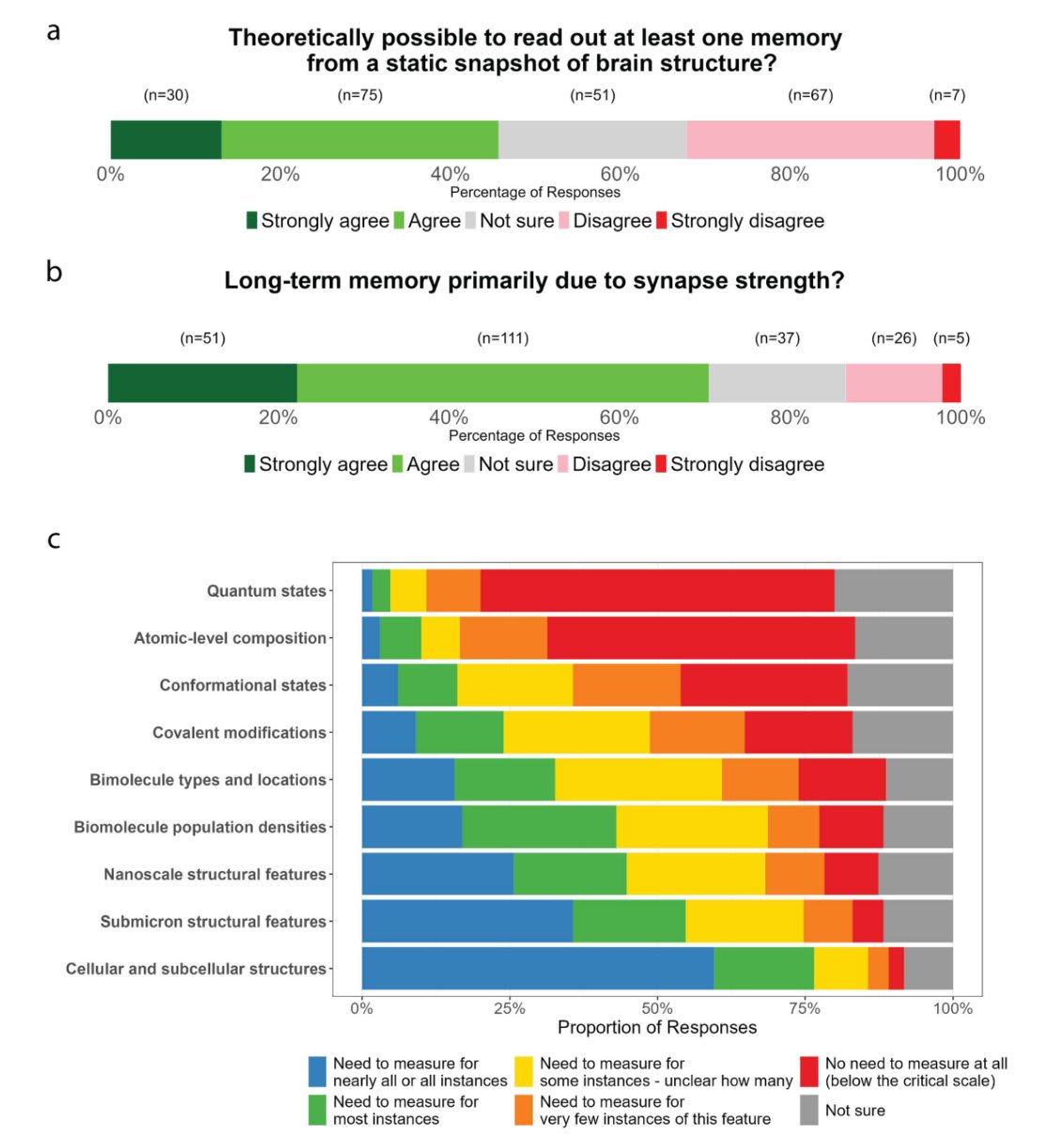
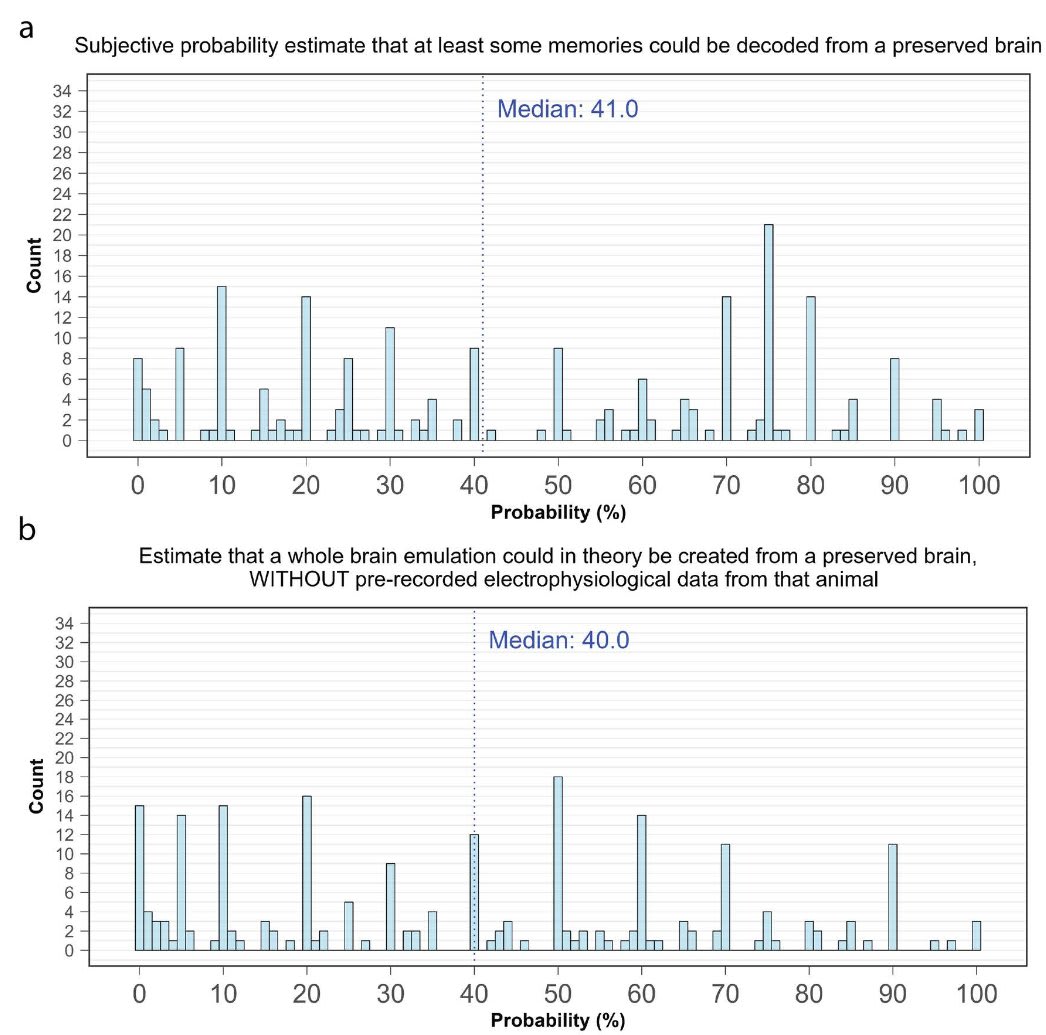
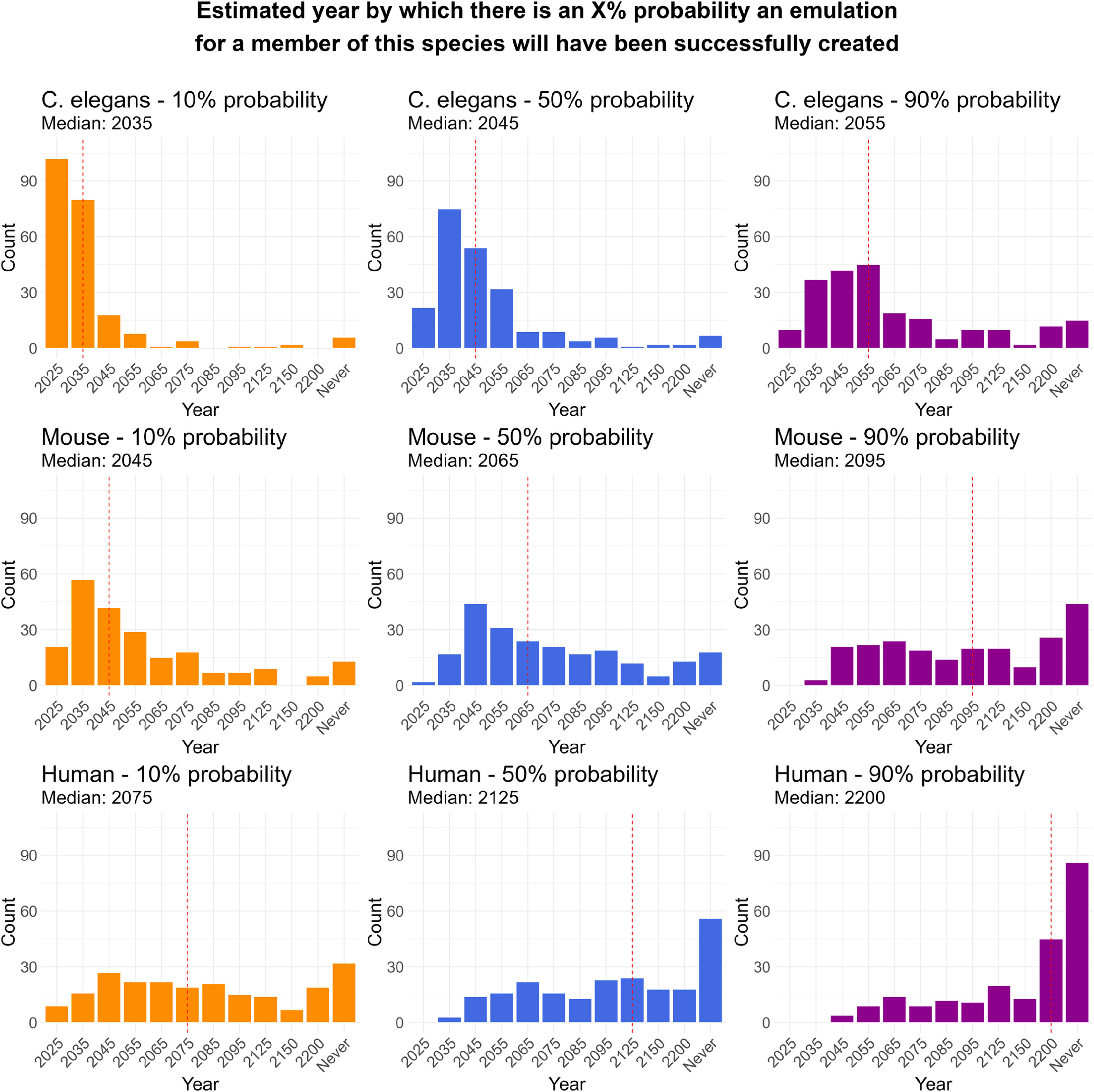
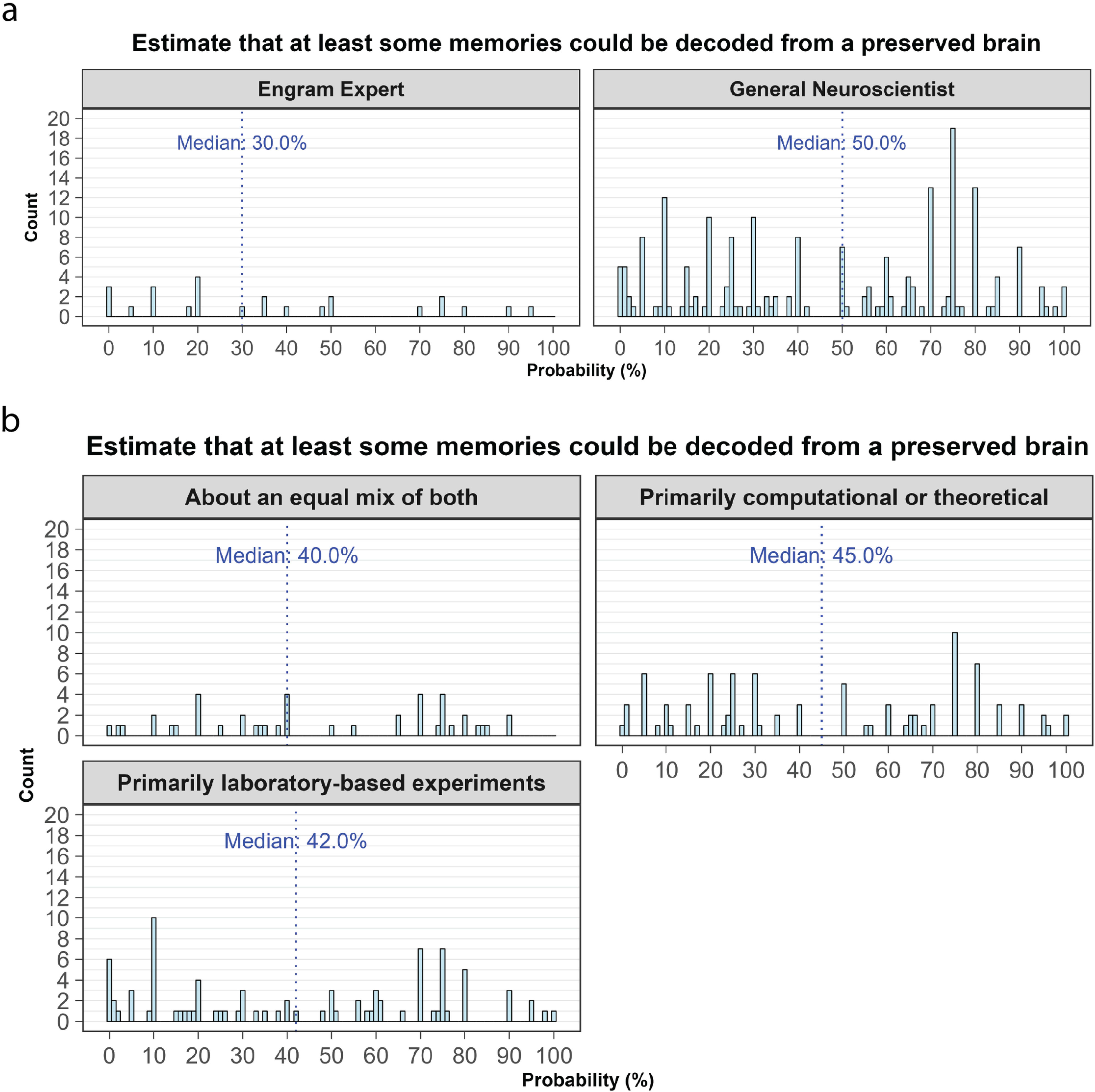
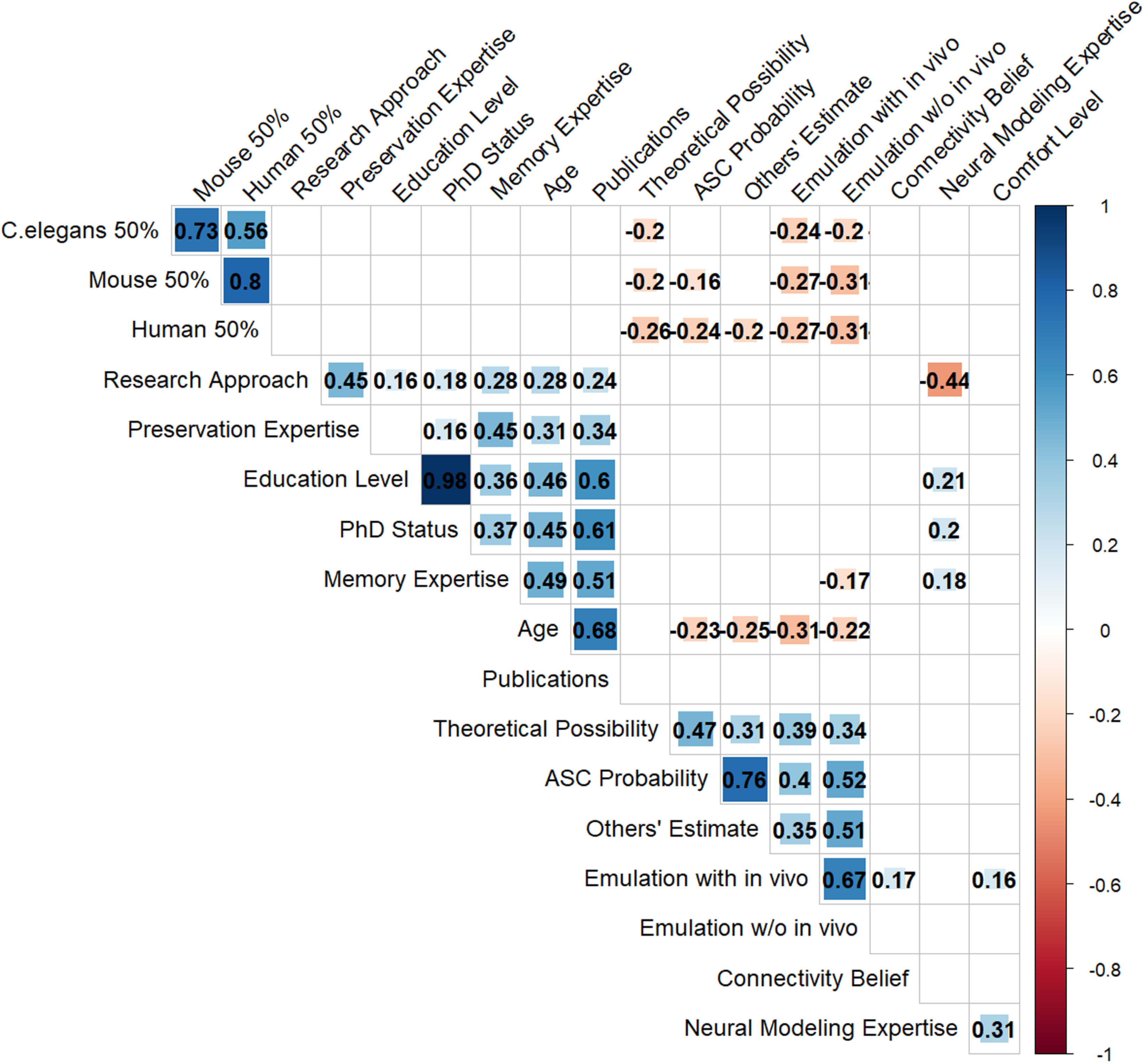
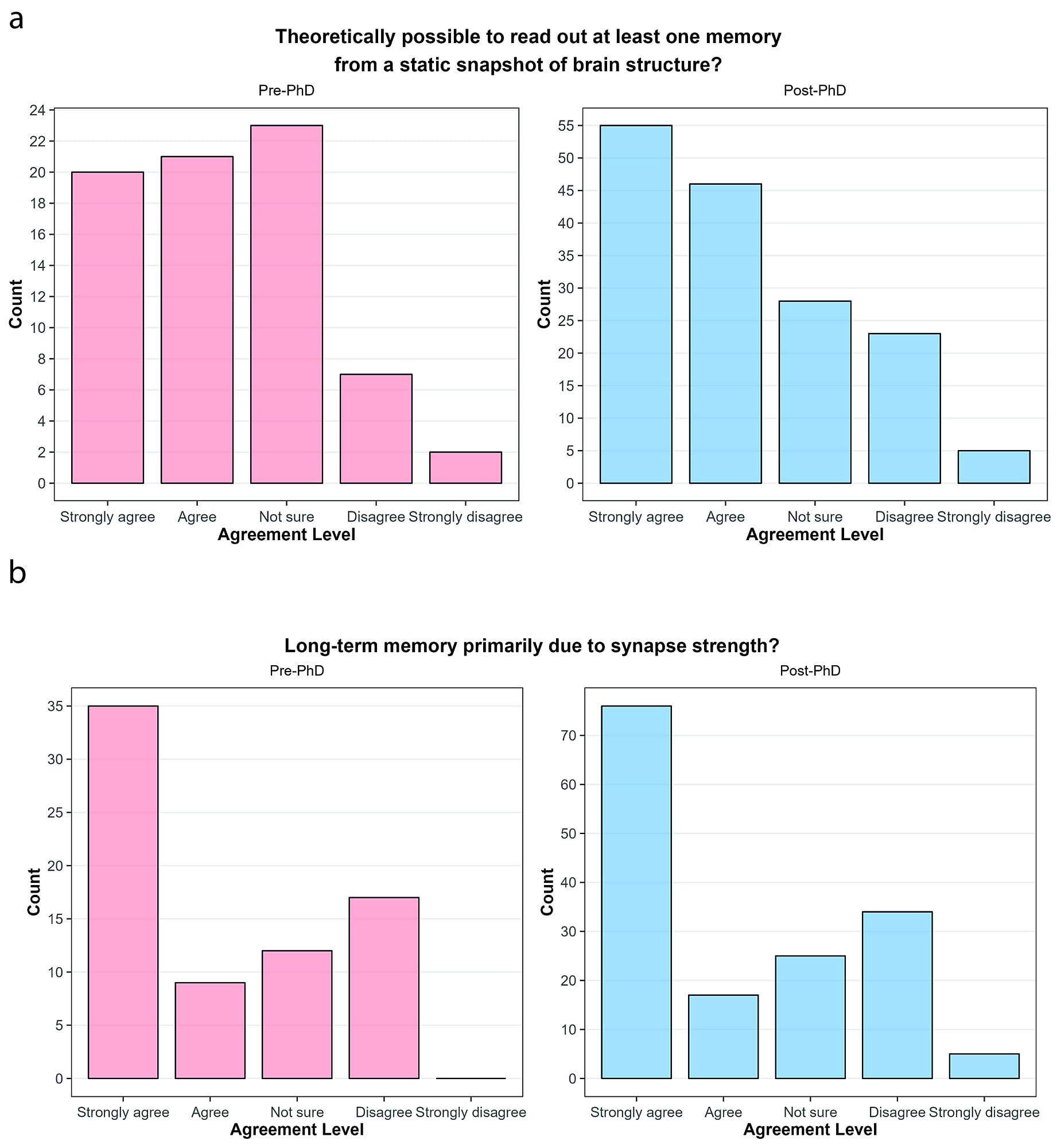
Sharing the infographics from Ariel's tweet thread you linked to and also the paper, to save folks the effort of clicking through:







x-posted on X
312 neuroscientists were surveyed, and they assigned substantial probability to long-term memories only depending on static brain structure preservable by modern brain preservation techniques.
Modern brain preservation techniques have a substantial probability to be good enough to preserve identity—to be a blueprint for a future whole-brain emulation/reconstruction/repair.
It's hard to overstate how important of an update this should be for a lot of people—seems like the highest impact per bit of information you could give an individual, at least one who wasn't signed up for brain preservation because they thought it was extremely unlikely to work.
In terms of preservation quality, there's still the uncertainty of whether you'll die in a way that's amenable to a good preservation—but that probability doesn't seem so low as to be worth ignoring the potentiality of brain preservation.
Here are some specific key take-aways from the survey:
Also see: